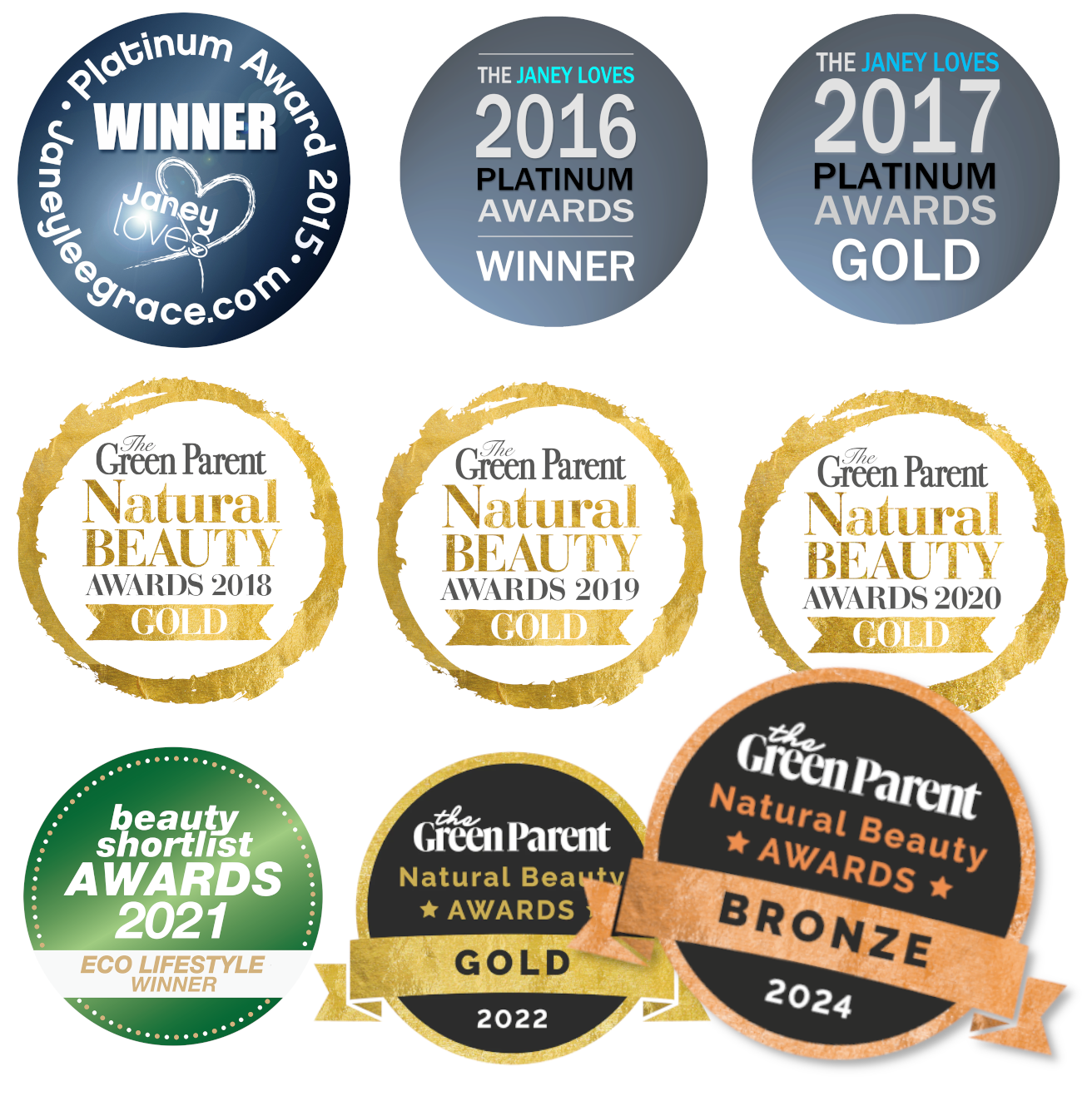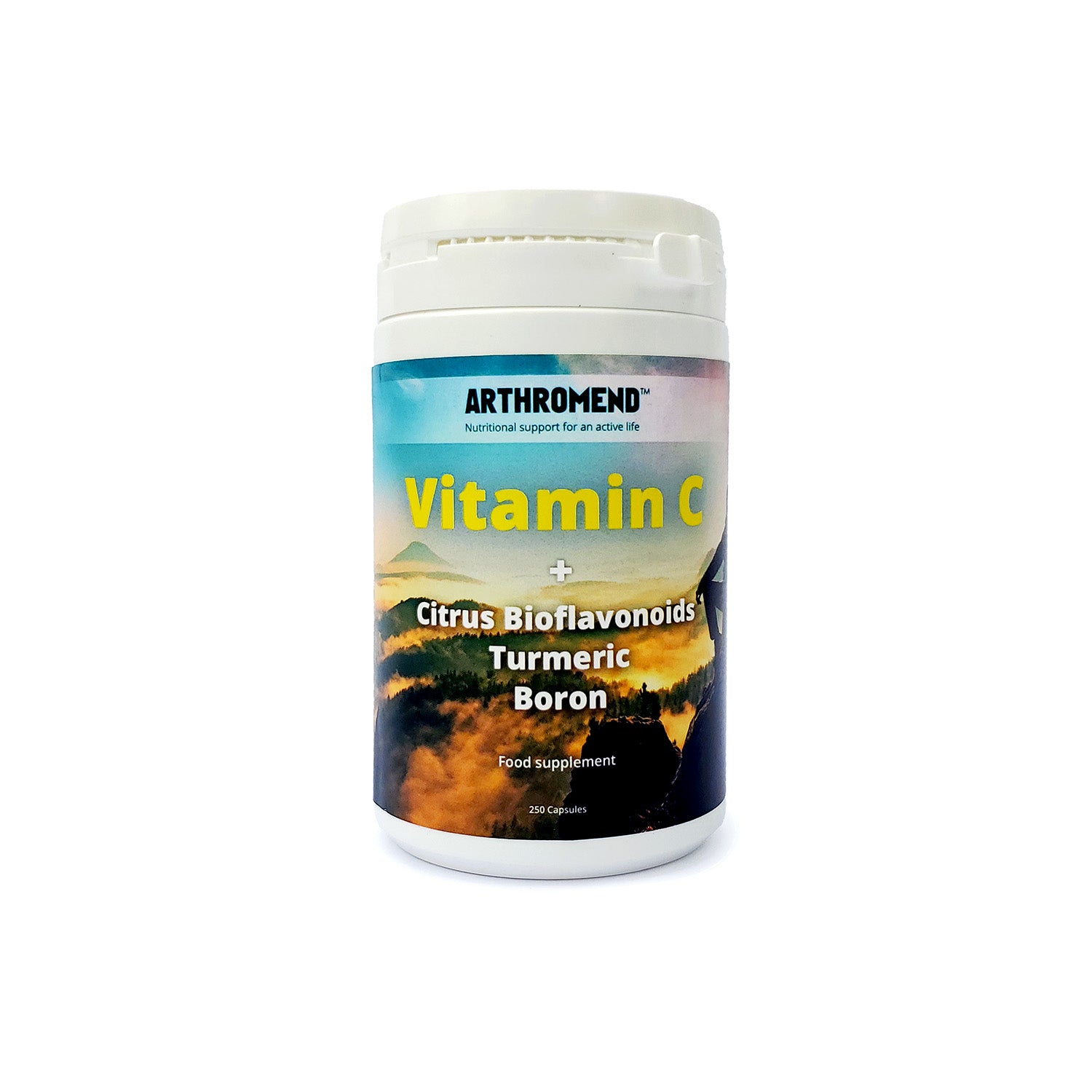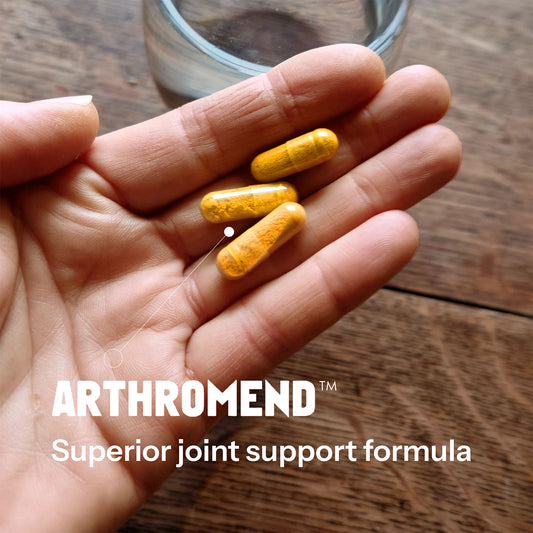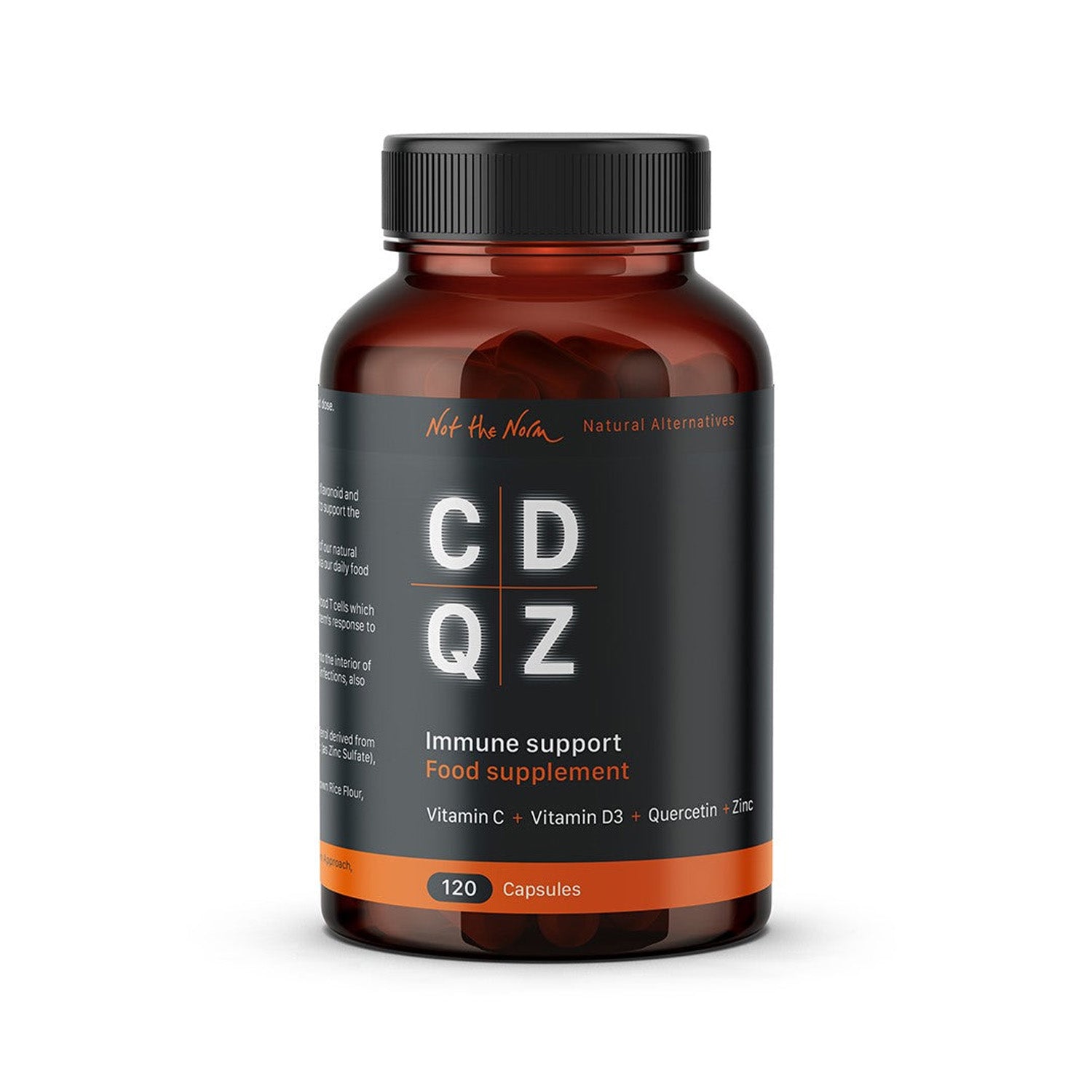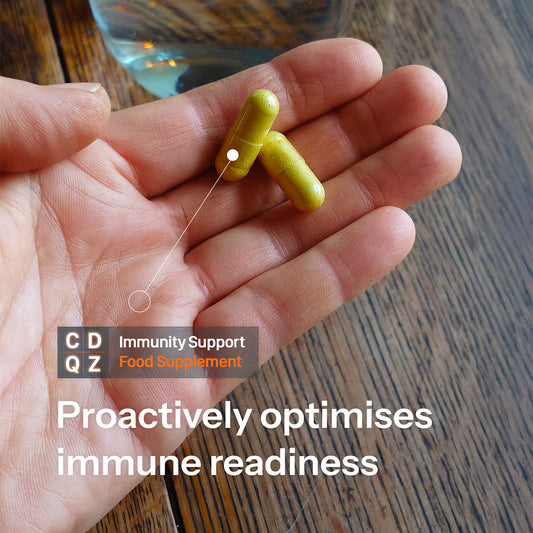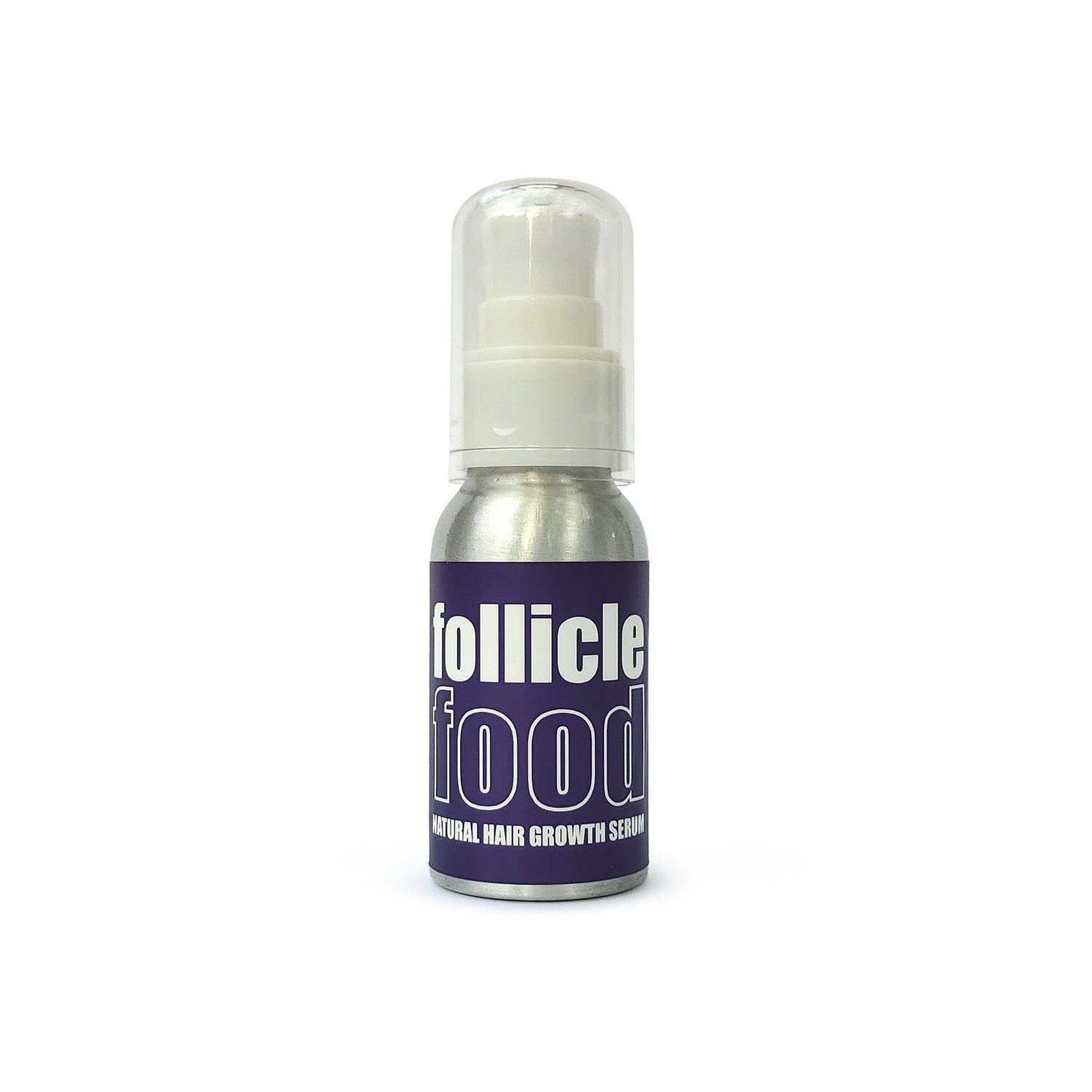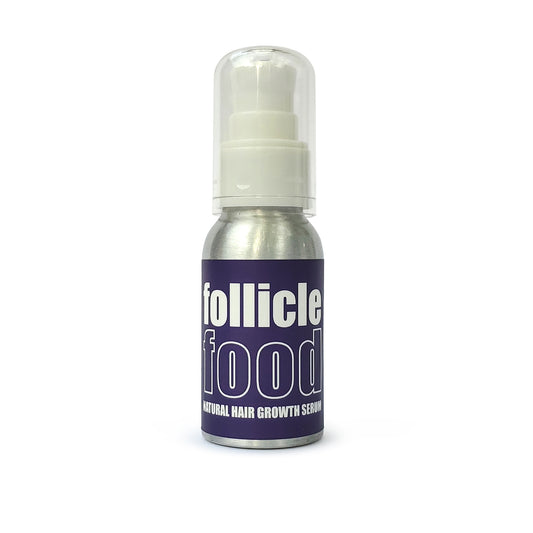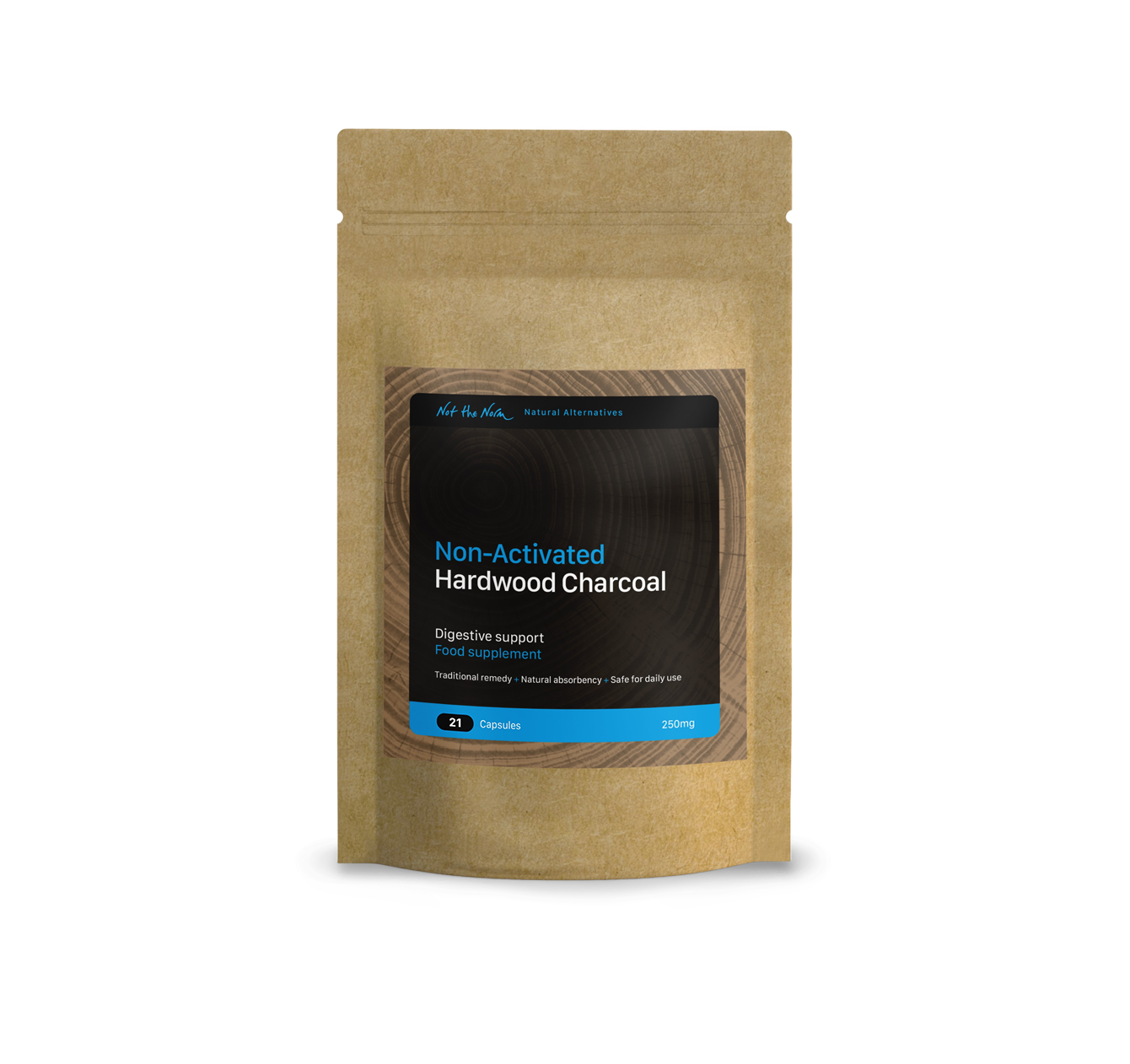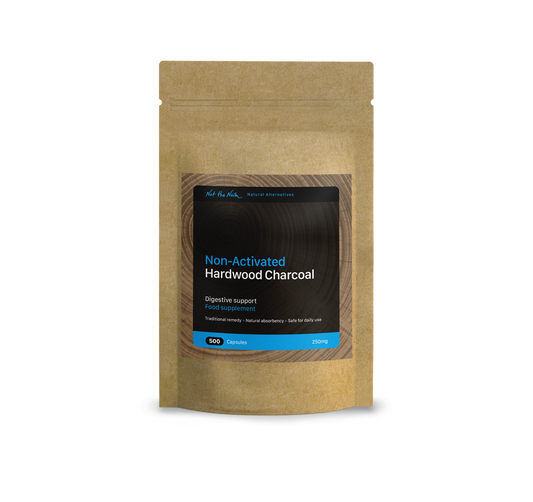Written by guest author Keith Foster FLS
Like most people you may be suffering from Hypoascorbemia, or lack of the Vitamin C. 30 odd years ago, by chance and whilst on the brink of parting from this world, I discovered that this seemingly innocuous vitamin has the powerful ability to heal when all else seems to prove ineffective.
Before or with each meal you should take 2gm of Vitamin C with a drink of pure water. Also, in place of tea and coffee breaks in the morning and afternoon 2gm of Vitamin C with water. My research has shown that everyone needs at least 5gm of extra Vitamin C a day, and that the best dosage is - "half a gram a day for every stone you weigh" - So if you are 8 stone it's 4 grams, 20 stone 10 grams and all the stops in between. It doesn't matter if you take more as you can't overdose on Vitamin C, its only side effects are beneficial and our bodies can't store it, so they retain what they need and pass the rest away naturally. This rate of Vitamin C intake must be kept up regularly no matter what age you are and as you grow older you should take a little more as the older you get the more you will have need of it to stay healthy.
What Does it Do?
- a) For a start Vitamin C, or ascorbic acid, is one of the basic building blocks of life and when taken as a food, in the way I've described, it stimulates your body's immune system making you much more resistant to disease and illness.
- b) It detoxifies your blood by combining with the poisons you take in when you smoke or eat the wrong things and clears them from your system naturally.
- c) It keeps your system regular by helping to clear away the toxic waste products in the lower bowel which could otherwise make you feel sluggish and ill.
- d) It is a totally effective hangover cure and enables you to drink without suffering so badly from the consequences.
- e) It clears your complexion and gives you better muscle tone.
- f) It helps considerably to reduce stress and the effects of stress on your nervous system and stomach, so you can lead a life with a better, calmer outlook and digest your food more effectively.
- g) It damps down or reduces pain and whilst not actually being a painkiller, it reduces very considerably the knock-on effects of pain (like sickness brought on by headaches), so you recover more quickly.
- h) It greatly helps the enzymes in your body to protect the essential membranes and tissues in its cell walls against oxidation.
- i) It helps redress the genetic imbalance in all our bodies which prevents us from making or manufacturing Vitamin C as all animals can and helps you to live a lot longer, more vigorous life by helping to constantly rejuvenate and rebuild your body from within.
You need more Vitamin C than you've been getting.
An apple a day keeps the Doctor away…
This saying was all very well for our great grandparents who led a less stressful, more healthy life in many ways than we do, not having the "advantage" of cigarettes, cheap booze, and junk foods, but for us nowadays it's not nearly enough. Also, I'm drawing on recent scientific discovery to help you to feel like a new person, to make you much better than ever before not just to keep the "doctor away" but never to need to suffer ill health again.
Too often in their overworked state doctors treat the symptoms of illness, not its causes; they palm you off with "medicines" which can have some very unpleasant side effects, and frequently adopt the attitude that "they know best" and you've no right to question their treatment or even ask what it does as you "wouldn't understand" even if you were told. Now that is utter rubbish and the worst kind of arrogance as it's your life and your body and there is no-one better qualified to tell them what you've been doing to yourself or what problems have occurred which have made you feel ill. Only you have the information on which they can give an accurate diagnosis and treat you. Even then they are often too busy to spend the time on you that you need, so you had better start looking after yourself and build a stronger constitution using my methods, after all, "you're all that you've got"! Don't misunderstand me, I too believe that modern science is a wonderful development whose achievements we should all applaud. I just don't happen to believe that enough time is spent on diagnosis, on finding out what really is the matter with people, at the local G.P. level and I do believe that if something is properly explained to us, we can understand it and help ourselves to better health.
This is the story of how I found my own path to robust good health based on the foregoing and I hope that it helps you.
The Plan
The basis of my plan is regular taking of Vitamin C as a food, coupled with twice daily short bursts of exercise which raise your pulse level to 130 or, alternatively, a longer phase of lower intensity exercise, such as walking, which stimulates circulation and breathing and induces calmness. I'll explain why.
Some 30 years ago, when I was in my 30's, I had a bad illness; one that, I thought at the time, was going to kill me and from which I just couldn't seem to recover. At this very low ebb in my life, I had good cause to take stock of what I had and what I wanted and determined that when (and at that time if) I recovered I was going to lead a much healthier life, live more sensibly and make sure I didn't get run down and so ill again.
Looking back, I felt that for years I had been living under par, less than my full capabilities allowed. I frequently suffered from listlessness, constipation, colds, a lowered sex drive and generally felt that I had been daydreaming and slouching through life at about half my capacity.
Anyway, whilst I was lying there ill, a friend came to see me and because I couldn't eat anything brought me some soluble 1-gram Vitamin C tablets in a tube which were flavoured to make a pleasant drink, because all I could do at that time was drink. He said that they had always helped him overcome colds and hangovers and since I was feeling so lousy, they wouldn't do me any harm and perhaps they would help me. By that time, I was just about prepared to try anything and without thinking much about what he had said I tipped the entire container-full into a pint of water and drank it down as it had a slightly acidic and refreshing taste, and I had a really sore throat.
You can imagine my discomfort when an hour later I had to totter off to the toilet clutching my stomach and suffered the runs for the next hour, when this vitamin went through me literally like a dose of salts! After that I felt a bit better; I went back to bed and promptly fell asleep and perspired very heavily during my sleep, waking up the next morning with the bedclothes wet through but feeling incredibly improved. I really was feeling better. Anyway, the doctor came that day, said that my temperature had gone, said that I was obviously on the mend and left me some more antibiotics, which I did not take. Instead I decided that, since by and large I don't like taking antibiotics or any other pills for that matter, the Vitamin C had done me so much good I would get some more, so I asked my wife to go down to the chemist and she brought me some more fruit flavoured soluble vitamin C tablets, which I took at the rate of two dissolved in 1/2- pint of clear, fresh water, every two hours, throughout the day. After another 24 hours I was ravenously hungry and began to graduate from the soup and fruits that I had been trying to force down before, to full-scale meals, and two days after that I was up and about feeling terrific. Bearing in mind what I said earlier I was determined not to get ill again and very, very curious as to what was so special about Vitamin C that it helped me to pull round so quickly. Like everyone else I couldn't see why a vitamin that I thought only cured scurvy could possibly give me a boost like that, especially as in my ordinary diet I used to eat plenty of oranges and stuff like that and considered that broadly speaking I was taking quite enough Vitamin C to keep me healthy. So, as my strength returned I determined to learn all there was to know about vitamins and Vitamin C in particular and began to write off for books by people who had done deep research into its properties, whilst at the same time looking into forms of exercise that would be a healthy contrast to my previous, fairly lazy lifestyle, but which would not be boring or take up too much time.
First of all I discovered a remarkable thing. Mankind is one of the very few species that does not synthesize Vitamin C in his body. My readings and research led me to believe that an ordinary diet does not supply us with nearly enough Vitamin C and that in fact the human race probably suffered from the genetic disease hypoascorbemia, which means a deficiency of ascorbate in the blood, which means a lack of Vitamin C!

What is Vitamin C?
Vitamin C, 1-ascorbic acid, is a rather simple substance, its chemical formula being C6 H8 O6. It is closely related to the carbohydrates; indeed, in the cells of plants and most animals (with man being an exception) it is made from the simple sugar glucose (dextrose, grape sugar, corn sugar), which has the formula C6 H12 O6. Ascorbic Acid is a weak acid with acid strength between that of citric acid, the principal acid in citrus fruits and acetic acid, the acid of vinegar. It is also a chemical reducing agent, capable of combining with oxygen and serving as an antioxidant. As an antioxidant it is effective together with Vitamin E, in protecting cell membranes against damage by oxidation. In addition to this function and its function in the synthesis of collagen, it is involved in many other bio-chemical processes in the human body. As you can see, once you begin to delve into medical and scientific research you tend to start talking like a scientist, but do bear with me, it¡¦s well worth your while!
How we Handle Vitamin C
Under ordinary circumstances the Vitamin C in the human body comes from the food that is eaten. The average intake of this vitamin by people is probably now about 100 milligrams per day. Most of the ingested vitamin is transferred across the intestinal wall into the bloodstream, producing an ascorbate concentration in the blood plasma of about 1.0 milligram per 100 millilitres. Essentially, all the ascorbate is converted into other substances, and there is evidence that these other substances are important in maintaining good health, even though we don't yet know very much about them and their actions. With this ordinary intake of Vitamin C, essentially none is lost in the urine, and it is all utilized in trying to keep the body healthy.
About Vitamin C Intake
Vitamin C cannot be stored in the body. It's got to be replenished regularly from the food we eat. However, the blood will only absorb so much Vitamin C, regardless of how much you may take at one time. For example, I take 12 grams a day and it doesn't matter whether I take 4 grams or 8 grams at one time, only the same amount will be retained in my bloodstream and the rest will be excreted in my urine. How much is excreted will depend on my body's specific need at the time; when I am under stress, I need more Vitamin C and at other times perhaps less. The intake will rapidly cause deep saturation and then will taper off and gradually return to the previous level so that since Vitamin C is inexpensive, it is better to waste a bit than to take too little. Also, since Vitamin C has been proved beyond any doubt to be totally non-toxic, taking too much will do you no harm and, as you will find, will do you a lot of good.
How Does Vitamin C Work?
It's a rather complicated process but basically Vitamin C functions by stimulating the immune system we are all equipped with and strengthening the collagen which binds the cells together. If you smoke you will be interested to know that each cigarette uses up 25 milligrams of Vitamin C from your body, so if you are a three-pack-a-day smoker, you will need 1.5 grams of Vitamin C just to stay even. Also, and very fortunately, Vitamin C is a great detoxifier, so that if you have been smoking as well as drinking, the Vitamin C boost that I have recommended in collaboration with molecular oxygen and certain enzymes in the human body, will convert toxic substances (including those that cause cancer), into non-toxic derivatives that are then eliminated in the urine. This detoxifying action has been demonstrated by scientists to apply to scores of substances, most of which are carcinogenic hydrocarbons, the nitrosamines and other cancer producing chemicals!
Whilst on the subject it is well worth mentioning that cigarette smoking is very harmful to the heart. The mortality rate from cardio-vascular disease at each age is twice as great for cigarette smokers as for non-smokers. I will deal with this later when we come to exercise in conjunction with Vitamin C, so that if you want to you can still go on smoking and reduce (remember not clear up completely but reduce only) your chances of an early death from heart disease caused by smoking.
Damage by oxidation is done by the unsaturated fatty substances present in the membranes of the cells, in the walls of blood vessels and other tissues. These important substances are protected against this damage by Vitamin C and Vitamin E which are their natural antioxidants. As I read more and more and experimented on myself with different exercise rates and different intakes of Vitamin C, I began to realise that there is something very special about Vitamin C, something that makes it different from all the other vitamins. This something is the very large difference between the optimum intake which leads to the best health and the greatest protection against disease, and the usually recommended or accepted intake which for most people is sufficient to prevent the corresponding deficiency disease, which is scurvy in the case of Vitamin C. For most of the vitamins the evidence indicates that the optimum intake is around 5 or 10 times the recommended or usual dietary allowance, but for Vitamin C the optimum daily intake for most people is probably 100 to 200 times what you get in your daily diet.
To find out why, we have got to go and look at the evolution of species and find out why man and the higher primates alone don't synthesize Vitamin C when all other animals do. After all, we are not that different in most other respects so what happened to us?
I went as far back as plants and very early life forms and found that it is a striking fact that all species of animals require Vitamin B1 in their diets to live, whereas all species of plants manufacture this substance, thiamine, in their own cells. Since animals have probably evolved from plants, I had to figure out what caused animals to lose the ability to synthesize thiamine.
The primeval animal, the ancestor of all other species of animals, inherited from its plant ancestors the genes that control the production of the enzymes involved in synthesizing or manufacturing thiamine in its body. However, since the biochemical requirements of this animal were nearly the same of those of its immediate plant ancestors, the animal would get plenty of thiamine by eating these plants and thus didn't need the thiamine synthesizing genes, so in time it mutated into a creature which was unburdened with this unnecessary machinery. Since then, all animal descendants of this primeval animal have had to rely on outside sources of thiamine for life and in the same way have lost the ability to synthesize riboflavin - Vitamin B2, paradoxine - Vitamin B6, niacin, the pellagra preventing vitamin - Vitamin A and most other vitamins.
Obviously, this early loss of synthetic or synthesizing ability did not occur for Vitamin C and almost all other species of animals have continued to synthesise ascorbic acid up to the present time with only man and the other primates, the guinea-pig, the fruit bat and some fish species such as trout and salmon losing this ability, so that their life and health depend on finding foods that provide a sufficient supply of this essential nutrient.
Notice here that I am talking about Vitamin C in the context of an essential food! Now, why didn't animals lose the ability to manufacture ascorbic acid? The answer to this lies in the physiological difference between animals and plants. Animals manufacture large amounts of collagen which is their principal structural micro-molecule (in place of the cellulose manufactured by plants), and ascorbic acid is required for the synthesis of collagen. Therefore, animals need ascorbic acid in greater supply than plants do as one of the basic building blocks of their bodies. And any animal strain which lacked the ability to synthesise ascorbic acid would probably die out very rapidly as the supply in the plant food diet would not fulfil its needs.
The Garden of Eden
It is probably quite by accident that man, as one of the few species which lost this ability, survived. Since ascorbic acid is a vitamin which has to be taken as a food and because mankind grew up in the tropical jungle, where there was a plentiful supply of it, there was no need to make it. So, I suspect that the lost paradise of the old biblical story was actually the tropical jungle with its ample supply of ascorbic acid. Sometime during the last 50 million years, or perhaps more than once, for the common ancestor of man and the other primates, for the ancestors of the modern guineapig and again for the other species that now require external supplies of Vitamin C, there may have been a series of accidental mutations which bred true.
The Detection of Something Special
By going through the logical stages this far it is not difficult to get some information about the optimum intake of Vitamin C for man. By checking the amounts of several vitamins present in 110 raw, natural plant foods, the amounts of vitamins corresponding to one day's food for an adult turn out to be (for several of the vitamins) about three times the usual dietary intake. But for Vitamin C the amount in plant foods is 2,300 milligrams, which is 51 times the average intake in an ordinary diet. This indicates very strongly that we all ought to be vegetarians but also that there is something very special about Vitamin C. If the need for Vitamin C were as small as 100 milligrams per day, taken in the average diet, then the various species of animal living on plant foods which provide far larger amounts of this substance, would have given up the burden of manufacturing extra amounts of the substance in their own cells. But they haven't. Therefore, it is not unreasonable to conclude that 2,300 milligrams is less than the optimum intake. Now the average amount of Vitamin C in a day's ration of 8 foods with the highest content is 12,000 milligrams and our early ancestors who lost the ability to synthesize ascorbic acid was probably living in a tropical valley where these and similar high-C foods provided this large
amount of the vitamin.
Man's Genetic 'C' Deficiency
The other primates have for the most part continued to live in tropical areas where their food has a high concentration of Vitamin C, but human beings have spread into other areas and their intake of Vitamin C has decreased to such an extent as to cause the health of nearly every person to suffer! It is my belief that all human beings have been suffering from the genetic disease Hypoascorbemia, a deficiency of ascorbate in the blood, or in other words a lack of Vitamin C. This disease can be controlled only by taking the proper amount of Vitamin C, which is indicated by the paragraph on detection to lie somewhere between 2,300 and 12,000 milligrams per day.
This belief is strongly supported by studies that have been made by scientists on the amounts of ascorbic acid that are synthesized by animals of various species. The favourite seems to be the goat, which being close to the size of a man (weighing 70 kilograms, 154 lbs.) synthesizes 13,000 milligrams of this vitamin each day. For other species, the amount synthesized is proportional to the body weight with average running at about 10,000 milligrams a day, over a range of 2,000 to 20,000 milligrams a day.
The Answer
The only reasonable explanation of the fact that such large amounts of ascorbic acid are made by these many animal species is that smaller amounts would lead to poorer health. Now we resemble other animals so closely in our biochemistry that we obviously have a similar need for this important substance.
The Side Effects of Vitamin C
Remember, I started taking Vitamin C when I was very ill and couldn't have cared less about side effects. In fact, I didn't even consider them when I took it, but there are a few and it is as well to deal with them now as they are all beneficial! Vitamin C is a remarkably innocuous substance - one of the least toxic substances known. Amounts of up to 200 grams have been taken in one day by mouth by humans without serious consequences and 100 grams or more of sodium ascorbate has been given by intravenous injection to patients who were very ill, with benefit rather than harm. Hundreds of people have taken 10 to 20 grams every day over periods of years or decades with no indication of harmful long-term side effects. The fact that animals of most species synthesize corresponding amounts makes this degree of tolerance of the substance reasonable as you would expect. The most common side-effect of large doses of Vitamin C taken all at once is looseness of the bowels, which in some people may be described as mild temporary diarrhoea, and an increased tendency to produce intestinal gas. Actually, a few grams of Vitamin C taken without other food can serve as an excellent laxative in clearing from the lower bowel the toxic waste material that could be harmful to the health if retained for longer times. Evidently some people tolerate sodium ascorbate better than ascorbic acid, and tablets, including time-release tablets, better than the pure crystalline vitamin. Most people can take 15 or 20 grams a day in divided doses (three or more a day) without any gastro-intestinal distress and sick people can and should take much larger amounts. Ascorbic acid is no more toxic than ordinary sugar (sucrose) and is less toxic than common salt, and far less toxic than aspirin or other drugs. There is no reported case of the death or severe illness of any person ingesting too large an amount of ascorbic acid.
The perfect cure for a hangover is a megadose of ascorbic acid. Between 7 and 10 grams dissolved in half a pint of pure water and taken orally will completely flush out the system, detoxify the bloodstream, kidneys, and liver, clear out the stomach and leave you feeling 100% better. If, after a heavy night's drinking, you have the presence of mind to take 2 grams of Vitamin C dissolved in half a pint of clear water, you will suffer less from the effects of the hangover the following morning and a lesser dose of 1 to 5 grams will completely cure you on awakening.
So, you see from the foregoing that Vitamin C not only helps detoxify the body from cigarette smoke, but it also keeps you relatively hangover free, regular, and in a much better state of health. You should take it regularly, at least 5 grams taken over the course of the day, as it is really an essential part of our food heritage. One of the great and hidden advantages of Vitamin C is that it stimulates the immune system which plays such an enormous part in our resistance to illness. Now the immunological defence system in our bodies has the difficult task of distinguishing foe from friend, by first recognizing 'not self' (the invading disease bacteria or malignant cells) as distinct from 'self' (the normal cells). Recognition depends on the evaluation of differences in molecular structure. For the viral and bacterial diseases these differences are striking, and their recognition is relatively easily accomplished. However, for the cancer cells the differences are slight and the immune mechanisms must be highly competent to be effective. There is a lot of evidence that Vitamin C is essential for the efficient working of the immune system as it has been found that human beings with a high intake of Vitamin C manufacture more antibody molecules than those with a lower intake, and antibodies or antitoxins are protein molecules that have the power of recognising 'not self' cells and combining them, thus helping to mark them for destruction by the body's normal processes.
There is another complex of protein molecules, called "complement" that is involved in an essential way in the process of destruction of foreign cells in malignant cells. It has been shown that increased intake of Vitamin C significantly increases the amount of the first component of "complement", C1 Esterase, without which the whole complement cascade is inoperable, and the 'non self' cells could not be destroyed. That Vitamin C is required in man for the synthesis of C1 Esterase is proved by the fact that the component of "complement" contains protein molecules that are like the molecules of collagen which are known to require Vitamin C for their synthesis, as I mentioned earlier.
Now, as I have said, Vitamin C is one of the basic building blocks of life and essential to human health, and thus far I have been able to discover that it also has two other properties apart from the ones I mentioned above, and they are that it helps to reduce stress and it helps to ease pain. But whatever you do, take regular amounts of Vitamin C on a regular basis each day, as this will enormously improve your overall health and fitness and help to lengthen your life.
Keith Foster, FLS
Content Disclaimer
The information contained above is provided for information purposes only. The contents of this blog are not intended to amount to advice, and you should not rely on any of the contents of this post. Professional advice should be obtained before taking or refraining from taking any action because of the contents of this post. Not the Norm Ltd disclaims all liability and responsibility arising from any reliance placed on any of the contents of this post.







